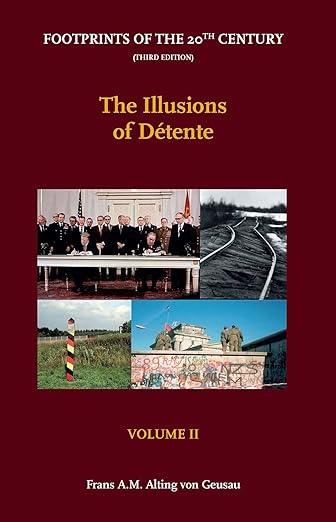Part I - Between Power Politics and Alliance of Democracies
Introduction
Chapter 1 - The first wold war and the peace treaties
Chapter 2 - The failure of collective security
Chapter 3 - The united states and collective security
Chapter 4 - The grand alliance
Chapter 5 - From containment to western cooperation
Chapter 6 - Western cooperation beyond containment
DOCUMENTS : FOOTPRINTS OF THE TWENTIETH CENTURY
For the study of international relations, knowledge of the history of Western Cooperation, since the appearance of the United States of America as the major power in world politics, is essential. In this volume Professor Frans A.M. Alting von Geusau presents the history of Western Cooperation around a central theme: the effort of realist idealists to replace power politics by closer cooperation between democracies. Part I reviews the broader history from America's entry in the First World War to the inauguration of Barack Obama as President of the United States. Part II focuses on the North Atlantic Treaty Organisation (NATO) as the cornerstone of Western Cooperation.The first edition of this book was published in January 2002 shortly after the terrorist attack on America on 11 September 2001. The presidency of George W. Bush jr. in the United States has been marked deeply by 9/11 and America's war on terror. The end of the second term of his presidency and NATOs sixtieth anniversary would be the appropriate time to bring out a second revised edition. The changes made in all chapters amount to major adaptations. In addition to new facts they include new insights gained from comments on the first edition and additional reading for this new edition. Prologue and Epilogue are newly written. The most important changes are in the format. The texts of the Chapters are brought together in one volume. The documents are no longer in the book itself but can be found on this website. FOR UPDATED INFORMATION ON SUCH ISSUES AS NUCLEAR DISARMAMENT, MISSILE DEFENCE AND THE NEW STRATEGIC CONCEPT OF NATO, PLEASE CONSULT "NIEUWS" on this website www.fransamaltingvongeusau.com where they are brought together in an easy accessible form.
- Chapter 1
- Chapter 1





